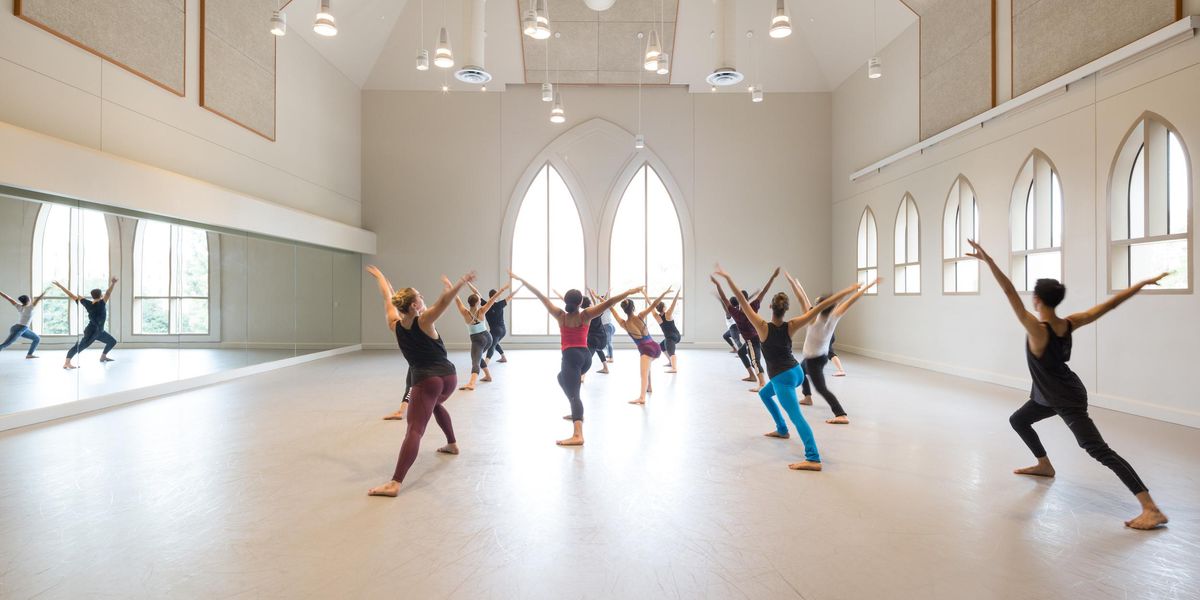A Big Prize for a Growing Artist
Chicago’s Harris Theater has awarded its
inaugural $600,000 fellowship to Brian Brooks.
Brian Brooks Moving Company in Run Don’t Run. Photo by Christopher Duggan, Courtesy Brian Brooks.
At a time when resources for dance are shrinking, Chicago’s Harris Theater announced at the end of March a generous three-year choreographic residency. Brian Brooks has received the inaugural $600,000 fellowship, which will pay $100,000 a year. The remaining $300,000 will go towards commissioning and production support. Collaborating companies announced as of press time are Hubbard Street Dance Chicago, which will perform the first of Brooks’ commissions at the Harris in November 2016, and Miami City Ballet and Brian Brooks’ own company, which will each perform a new work by Brooks during the theater’s 2017–18 season. The residency, intended to raise the venue’s profile, is supported for its first five years by the Jay Franke and David Herro Choreographer in Residence Fund. A second project will be announced at a later date.
Selecting a New York choreographer for a Chicago venue might seem odd, but Harris board member Jay Franke says Chicago audiences know Brooks’ work thanks to his five consecutive summers at the Chicago Dancing Festival and his work in Wendy Whelan’s Restless Creature. Brooks is at the perfect point in his career for a full-on residency “to catapult him into whatever is next,” says Franke, a former Hubbard Street dancer and co-founder of the Chicago Dancing Festival. “Brian is a very special artist. He has this gift of taking his work and translating it to Wendy, to his own company. I’m just excited that we get to be there when he moves in these new directions.”
For his part, Brooks says he’d already found “a truer voice” through his recent collaborations with ballet and theater artists. The residency, however, will give him the time, financial resources and freedom to pursue his wildest choreographic dreams. Having averaged five new works annually in recent years, he believes he’ll now have breathing room to plan, research and travel, and absorb new techniques. “I think the artistic growth, discovering the unknowns of my artistry, is such a gift,” says Brooks. Rather than running his career from his couch in what he calls “a guerrilla-style venture,” he can now “shift the conversation in the studio to the art-centric: What is it we’re doing? How is this work relevant today in America? Who are we as people? I’m thrilled by that kind of social thinking.”
After the residency was announced, “it became very clear that this was not an award for me,” Brooks says. “They’re awarding the collaborative nature of dancemaking. The community—the artists’ community and the community of audiences—is being supported on this larger scale.”




